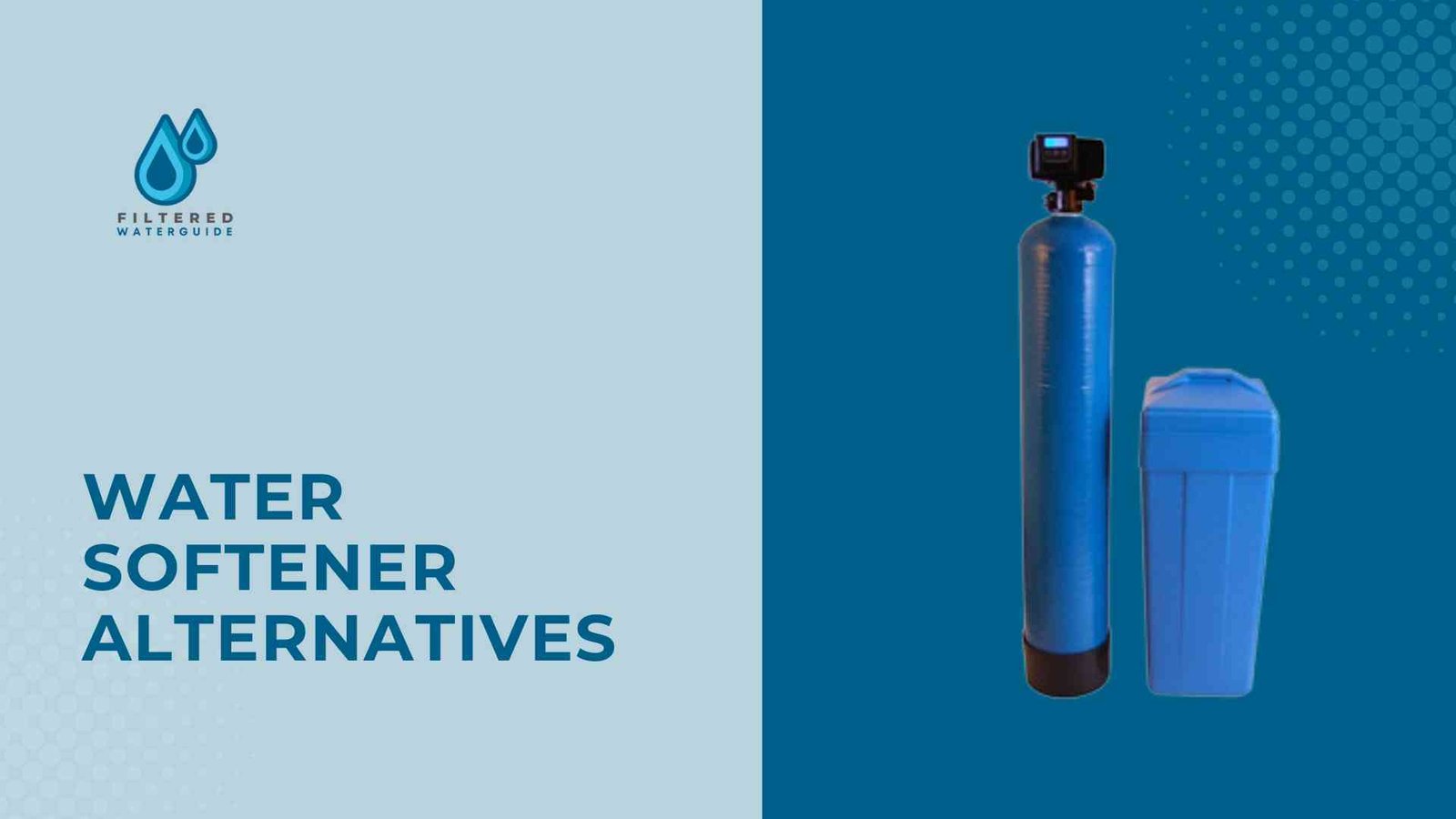Filteredwaterguide.com is supported by readers. If you purchase through referral links on our site, we make a commission at no extra cost to you. Learn more.
Have you been experiencing annoying hard water-related problems but you really don’t want to install a traditional water softener?
Then rest assured all is not lost.
Alternate water softening solutions are available.
Although none of these work quite as effectively as a traditional salt-based water softener when it comes to eliminating hard water-causing calcium and magnesium minerals, they can still significantly reduce the hard water-associated limescale problems that you are experiencing.
Trust me when I say hard water is nothing that you want to mess around with.
In my 26 years in the pool and spa industry, I have seen firsthand how it severely impacts water circulating & heating equipment and how it can lead to clogged plumbing lines.
As you read on, you will come to find that there is no good reason to put up with the problems that having hard water causes even if you prefer not to use a salt-based water softener. The number of water softener alternatives that are available will probably even surprise you.

These are also known as nucleation-assisted crystallization water treatment systems. When water flows into them it contacts a special media that alters the makeup of the calcium, magnesium, and bicarbonate minerals that are found in your tap water.
This ‘crystallization’ that takes place when hard water-causing minerals contact the media does not remove them but rather changes them into a form that will not cause problematic limescale.
This keeps limescale from building up in pipes and from sticking to appliance heating elements and accumulating on bathroom and kitchen fixtures.
Just as with template-assisted crystallization, these too work by crystallizing hard water-causing minerals so limescale does not stick to the inside of pipes or accumulate on appliance heating elements or bathroom and kitchen fixtures.
They just substitute magnetism as the means to cause mineral crystallization instead of the special media that’s found in template-assisted crystallization systems.
This is a relatively simple but very impactful means of removing contaminants that are found in your tap water such as hard water-related minerals.
When water under pressure flows into a reverse osmosis filter, it will come into contact with an advanced semipermeable membrane.
This will only allow solvents (such as water) to pass through and most solutes are then trapped on the feed side of the membrane and subsequently discharged out of the system.
Here are some of the main reasons why people choose to use other water softening means than a salt-based water softener:
Now that you know there are many water softener alternatives, you should also know that treating hard water is a topic that will stay mainstream well into the future.
As this trend continues, you can expect creative and ambitious companies that see an opportunity to make money to come up with even more effective ways to treat hard water that do not use salt in the process.
In the meantime, take advantage of the salt free water softener alternatives that are currently available so they will save you from some of the many headaches that are associated with having hard water in your home.
Consider using one of these alternative water softening methods if you are experiencing any type of limescale buildup on your bathroom and kitchen fixtures.
This also applies if you are experiencing repeated clogs in your plumbing or you are replacing water heating elements frequently.
© 2024 Filtered Water Guide. All rights reserved.